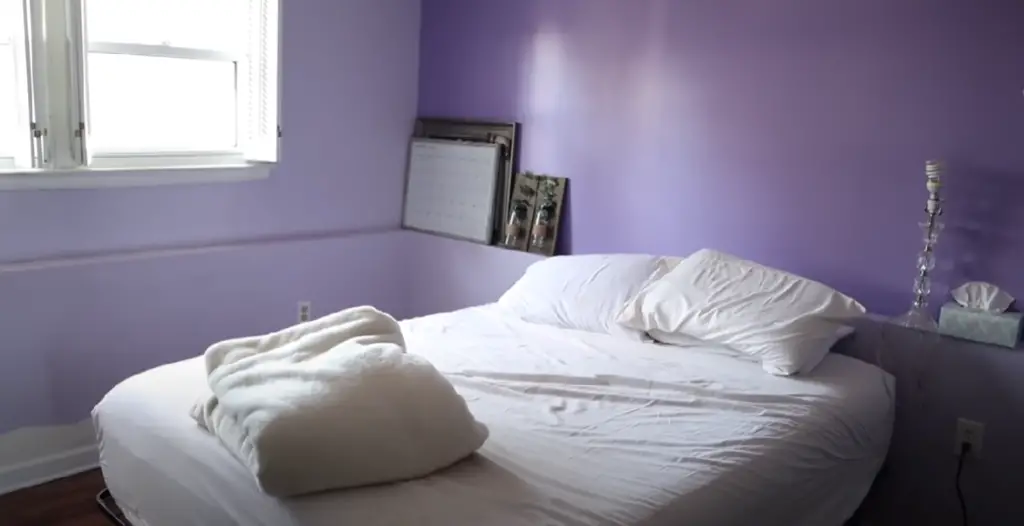Maintaining the freshness of your bed sheets between washes can greatly improve the quality of your sleep and overall comfort. Nevertheless, many individuals remain unaware of the diverse and efficient techniques to accomplish this objective without the necessity of frequent laundering. In this guide, we will walk you through several easy and practical steps to freshen your bed sheets, helping you maintain a clean, comfortable, and pleasant sleeping environment.
Why is it important to keep sheets clean and well-maintained?
Clean and well-maintained bed sheets are critical for several reasons. First and foremost, they help in promoting good hygiene.

Regularly freshening your sheets can help mitigate these issues, contributing to a healthier sleeping environment. Furthermore, fresh and clean sheets add to the overall comfort and aesthetic of your bed, providing a more enjoyable and relaxing sleep experience. There is also a psychological benefit involved; many people find that getting into a bed with clean, fresh-smelling sheets is a simple pleasure that aids in relaxation and stress relief. Hence, keeping your sheets clean and well-maintained ensures both a pleasant and healthier sleeping environment.
What sets washing sheets apart from other laundry tasks?
Washing bed sheets is distinct from other laundry tasks due to several unique factors. Firstly, the size and weight of bed sheets, especially those for larger beds, can make them more cumbersome to handle than regular clothing.

Secondly, bed sheets are usually made of delicate materials that may have specific washing and drying requirements to maintain their texture, color, and longevity. Additionally, as bed sheets are in direct contact with the skin for prolonged periods, they can absorb substantial quantities of sweat, body oils, and skin cells. This necessitates more thorough cleaning compared to regular clothes to ensure all these residues and any potential allergens or bacteria are effectively removed. Finally, while regular clothing is typically washed after a single day’s use, bed sheets are often used for a week or more before washing. This increased use between washes can lead to a build-up of odors and stains that need to be addressed during cleaning.
Methods to freshen bed sheets without washing
The following are some simple methods that you can use to keep your bed sheets fresh and clean between washes:
Room Deodorizers
Room deodorizers, such as incense sticks, reed diffusers, and air fresheners, can help mask unpleasant odors on your bed sheets. Place one or two sticks in the bedroom and let them work their magic. However, be sure to keep the room ventilated to avoid any lingering smells that might affect your breathing.
Fabric Fresheners
When it comes to freshening up sheets in between washes fabric fresheners are especially useful. Simply spray some of the fresheners onto your bed sheets and let them sit for a few minutes before airing them out. This method is especially useful if you have recently spilled something on your sheets and need to get rid of any lingering odors.
Baking Soda
Baking soda is an effective odor-neutralizing agent that can be used to freshen your bed sheets. Simply sprinkle some baking soda on the mattress and sheets, let it sit for at least half an hour, then vacuum it up. Not only is this a cheap and easy-to-do method, but it also helps get rid of odors without leaving behind any chemicals or fragrances.
Dryer Sheets
One of the most convenient ways to give your bed sheets a quick refresher is by using dryer sheets. Simply tuck a few of these into your pillows and mattress, let them sit for an hour or two, then remove them before getting into bed. This method helps get rid of any unpleasant smells while also leaving behind a light scent that will fill the room.
Easy Methods to Refresh Sheets Without Washing
Here are a few additional easy methods to refresh your sheets without washing them:
Essential Oils
Using essential oils is a delightful and natural approach to ensure that your bed sheets remain pleasantly fragrant. Add a few drops of your favorite essential oil to a water-filled spray bottle, shake it well, and then lightly mist your bed sheets. Lavender, eucalyptus, and peppermint oils are popular choices because of their relaxing and refreshing scents.
Sunlight and Fresh Air
Sometimes, the simplest methods work best. Hanging your bed sheets in the sun for a few hours can do wonders for refreshing them. Exposure to sunlight and fresh air has the potential to eliminate bacteria and mites, while also reducing excessive moisture. This natural remedy not only tackles these issues effectively but also promotes a healthier environment. Plus, nothing beats the fresh smell of sun-dried sheets!
Vinegar
Just like baking soda, vinegar is a great natural deodorizer. Add one cup of white vinegar to a spray bottle filled with water and mist your bed sheets lightly. Allow the vinegar to air dry for a fresh, clean scent.

Remember, these methods are meant to be quick fixes for in-between laundry days. It’s still important to wash your sheets regularly (ideally once a week) to remove all dirt, sweat, oils, and dust mites that build up over time.
Using a fabric steamer to effectively sanitize fabric-like sheets
Fabric Steamer
Using a fabric steamer is an effective way to sanitize and freshen up your bed sheets. The high-temperature steam can kill off bacteria, dust mites, and other allergens that may be present on the fabric. To use, simply fill the steamer with water and allow it to heat up before slowly running it over your bed sheets. Be sure to cover the entire area for maximum effectiveness. Not only will this process help to sanitize your sheets, but it will also leave them looking crisp and wrinkle-free. However, always check the care instructions on your sheets before steaming, as some fabrics may not withstand the heat.

Keeping Blankets Fresh in Storage
If you’re storing blankets for an extended period, there are a few key steps to ensure they stay fresh and ready for use when needed.
Clean Before Storage: Before putting blankets away in storage, make sure they are thoroughly cleaned and dried to prevent mold, mildew, and unpleasant odors.
Use Vacuum-Sealed Bags: Vacuum-sealed storage bags help to save space and protect your blankets from dust, bugs, and moisture. Don’t forget to squeeze out as much air as possible before sealing to keep the blankets fresh.
Store in a Dry, Cool Place: Moisture is the enemy when it comes to storage. Keep your blankets in a cool, dry place to prevent the growth of mold and mildew.
Add a Scent: For a pleasant surprise when you pull out your blankets, consider adding a sachet of dried lavender, a fabric softener sheet, or a few drops of essential oil inside the storage bag.
Avoid Plastic Containers: If you’re not using vacuum-sealed bags, avoid storing blankets in plastic containers, as they can trap moisture and lead to a musty smell. Instead, opt for breathable fabric bags or cotton sheets to wrap your blankets.
Bear in mind that even while in storage, blankets should be taken out, aired, and refolded every 3-6 months to prevent them from acquiring a stale smell and to keep them in top condition.
What are the benefits of using natural methods to freshen bed sheets?
Using natural methods for freshening your bed sheets can be beneficial in a few ways. First, these solutions are often safer than chemical-based products as they don’t contain any harsh or hazardous ingredients. Second, many of these solutions are easy to make with ingredients that you probably already have on hand. Finally, they’re often more cost-effective compared to commercial products.

Sprinkling baking soda on your mattress can help absorb moisture and eliminate odors while adding a few drops of essential oil to a fabric softener sheet can provide your bed sheets with a fresh, pleasant smell. White vinegar can act as an all-natural stain remover and odor neutralizer. To use it, simply dilute it with water and spritz it over your mattress before vacuuming off the residue. With the right ingredients and a bit of creativity, you can easily create a safe and budget-friendly freshening solution for your bed sheets.
How to deodorize bed sheets?
Deodorizing your bed sheets is a simple task that can make a huge difference in how fresh your bed feels. Here’s a step-by-step guide:
Pre-Treat the Sheets: If your sheets are particularly smelly, you may want to pre-soak them in a solution of warm water and 1 cup of baking soda. Place the sheets in the solution and let them soak for at least an hour. Baking soda is a great natural deodorizer that can help neutralize odors.
Wash the Sheets: After pre-soaking, wash the sheets as you normally would in your washing machine. Using a good quality detergent can help further reduce lingering odors.
Add Vinegar to the Rinse Cycle: Instead of fabric softener, add a cup of white vinegar to the rinse cycle. The vinegar will help to eliminate any remaining odors and can also help to soften your sheets.
Line Dry Outside: If possible, hang your sheets to dry outside in the sun. The sun’s UV rays can help to kill any odor-causing bacteria that may be left on the sheets.
Use Essential Oils: Once your sheets are dry, spray them lightly with a mixture of water and a few drops of your favorite essential oil. This will give your sheets a pleasant, fresh scent.
Remember that the key to keeping your sheets smelling fresh is regular washing. If you sweat a lot or if you’ve been sick, you may need to wash your sheets more frequently.
FAQ
What is the recommended frequency for washing bed sheets?
According to the American Cleaning Institute, bed sheets should ideally be washed once a week. This frequency ensures that sweat, body oils, dead skin cells, and dust mites, which can accumulate on your sheets over time, are regularly removed. However, if you sweat excessively, are sick, or have allergies, you may need to wash your sheets even more frequently. Always use warm or hot water, and a quality detergent for the best results. Drying your sheets in the sun can help to naturally disinfect them while giving them a fresh, clean smell.
Is it necessary for me to replace my bed sheets?
Yes, replacing your bed sheets periodically is recommended. The frequency of replacement can depend on several factors, such as the quality of your sheets, how often you wash them, and personal preference. On average, it’s suggested to replace your bed sheets every two years. However, if your sheets start showing signs of wear and tear, like thinning fabric, fading colors, or stubborn stains, it’s a good indication that it’s time for a new set. Also, if you start experiencing discomfort or itching during sleep, it could be due to an accumulation of allergens or dust mites which can be hard to completely remove even with regular washing. In such cases, replacing your sheets might be beneficial for your health and sleep quality.
Is it better to tumble dry or line dry bed sheets?
Tumble drying is more convenient and typically takes less time than line drying. However, line drying your sheets outdoors has many advantages that you can’t get from a tumble dryer. For starters, the sun’s UV rays can help to naturally disinfect and deodorize your bed sheets. Plus, it’s a zero-energy solution that is both cost and environmentally friendly. Line drying can also help to reduce wrinkles and static electricity, leaving your sheets feeling softer and smoother. If you don’t have access to an outdoor space, you can hang your sheets indoors near a window for natural ventilation. Whichever option you choose, remember to always follow the instructions on your bed sheets’ care label for best results.
Whichever option you choose, always remember to remove your sheets from the dryer or line while they’re still slightly damp. This will make them much easier to iron and fold. Additionally, adding a few tennis balls in the dryer can help to reduce wrinkling and soften your sheets, while making them fluffier and more comfortable.
What is a natural odor eliminator?
A natural odor eliminator refers to substances that are derived from natural sources and can neutralize or remove unpleasant smells. These substances work by absorbing and trapping odor molecules, effectively deodorizing the environment they are used in. Examples of natural odor eliminators include baking soda, white vinegar, activated charcoal, coffee grounds, and essential oils. Baking soda and white vinegar are particularly popular due to their versatility and accessibility. They can be used to deodorize a wide range of items, including bed sheets, as mentioned above. Essential oils, on the other hand, not only help eliminate odors but also impart a pleasant fragrance, contributing to a fresher and more aromatic environment.
Can I use fabric softener on my bed sheets?
Fabric softeners are designed to reduce static cling, soften fabrics, and make laundry smell good. It is important to note that fabric softeners contain synthetic chemicals that can leave residue on your sheets. This residue may be irritating to some people’s skin, particularly those with sensitive skin or allergies. It can also discolor or damage your sheets over time, so it’s best to avoid using them. Instead, you can use alternatives such as white vinegar or natural essential oils for a fresher scent and softer fabric.
How do hospitals effectively eliminate unpleasant odors?
Hospitals use a variety of methods to effectively eliminate unpleasant odors and maintain a clean environment. One of the primary methods is through regular and thorough cleaning using disinfectants and odor-neutralizing cleaning agents. This includes regularly cleaning surfaces, floors, bedding, and medical equipment.
In addition to cleaning, hospitals also use air purification systems to remove odors from the air. These systems often use HEPA filters or activated carbon filters, which can trap and neutralize odor-causing particles.
Another method used is the application of odor eliminators, which are often enzymatic cleaners. These cleaners break down the organic material that causes the odor, effectively neutralizing it.
Lastly, good ventilation is crucial in controlling and eliminating odors in hospitals. Proper ventilation helps disperse airborne odors and improves the overall air quality in the hospital.
It’s important to note that while these measures are effective, they are part of a larger infection control strategy in hospitals that focuses on maintaining a clean and safe environment for patients and staff.
How to make my bedroom smell nice?
Creating a pleasant aroma in your bedroom can enhance your relaxation and sleep quality. Follow these steps to make your bedroom smell nice:
Use Essential Oils: Essential oils are a great way to add a delightful aroma to your room. You can use an oil diffuser or make a DIY room spray by mixing water with a few drops of your favorite essential oil. Remember to choose non-toxic oils, like lavender or vanilla, which are known for their calming properties.
Candles and Incense: Scented candles and incense sticks can also create a soothing atmosphere. Just ensure to extinguish them before leaving the room or sleeping for safety reasons.
Fresh Flowers: Fresh flowers not only add a fresh scent but also enhance the aesthetics of your room. Choose fragrant flowers like roses, lilies, or jasmine.
Clean Regularly: Regular cleaning can keep odor at bay. Vacuum the carpet, wash the bed sheets, and clean surfaces frequently.
Air Purifiers and Dehumidifiers: These appliances can remove odor-causing particles from the air, making your room feel fresh.
Proper Ventilation: Open your windows daily to allow fresh air to circulate. This is a natural and effective way to keep your bedroom smelling nice.
Remember, each person’s preference for scents is different, so personalize your choices to suit what makes you feel most relaxed and comfortable.
Why do my sheets still smell after washing?
If your sheets still smell after washing, it could be due to some factors. One common reason is the growth of mold and bacteria, which can occur if sheets are left damp for too long, either in the washing machine or after line-drying. These microorganisms can produce a musty odor that persists even after washing. Another possibility is the use of too much or too little detergent. Excessive detergent can leave a residue that traps odors, while insufficient detergent might not effectively remove all odor-causing substances. Hard water can also affect the efficacy of your detergent. Furthermore, machine-washing your sheets in a low-temperature setting might not kill all bacteria and fungi, allowing them to contribute to unpleasant smells. Lastly, using a fabric softener can leave a waxy buildup on sheets that traps odors and reduces the fabric’s ability to absorb water during washing. Always ensure to dry your sheets thoroughly, use the right amount of detergent, and consider a higher wash temperature if safe for your sheets.
Useful Video: WATCH STAIN DISAPPEAR/REMOVING URINE/SWEAT STAINS FROM BEDSHEETS/ HOW TO WASH WHITES WITHOUT BLEACH
Conclusion
Maintaining fresh and clean bed sheets is an essential part of good sleep hygiene. Regular washing, sensible storage, and using natural methods to freshen your sheets can all contribute to a more comfortable and healthy sleeping environment. Remember to replace your sheets when necessary and always follow care instructions to prolong their lifespan. Whether you tumble dry or line dry, ensure your sheets are properly dried to prevent the growth of mold and mildew. By taking these steps, you can enjoy the comfort of fresh, clean sheets and a good night’s sleep.
References:
- https://www.maid4condos.com/7-tips-for-keeping-your-sheets-fresh-between-washes/
- https://thedailybed.com/freshen-blankets-without-washing/
- https://krostrade.com/blog/how-to-clean-bed-sheets-without-washing-them/
- https://acraftyhomemaker.com/how-to-clean-bed-sheets-without-washing-them/
- https://home-ec101.com/what-causes-smelly-sheets/
- https://lifehacker.com/how-to-get-that-funky-smell-out-of-your-sheets-1847524866














Leave a Reply